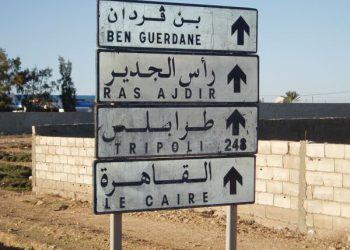By Ashraf Abdul Wahab.
It is reported from Cairo that the Egyptian police are holding Libya’s former deputy health minister Adel Addeib.
He . . .[restrict]was arrested last month in what appears to have been a sting organised by the Libyan embassy in the Egyptian capital and is still being held.
According to the Egyptian newspaper Al-Youm Al-Sabaa, the arrest happened after the embassy had contacted Addeib to come and help coordinate celebrations for the first anniversary of the 17 February Revolution. As soon as he arrived, the Libyan ambassador in Cairo, Abdelmonem Al-Huni, contacted the police. They came and arrested him. He was then kept overnight at Qasr Al-Nil police station and transferred the next day to the prosecution service. However, it decided to release him because of a lack of any evidence of any wrong-doing in Egypt. However, he was then re-arrested immediately on leaving the prosecution office.
According to Nassir Al-Hawari of the Libyan Human Rights Association, the police re-arrested Addeib after a second call from the Libyan ambassador.
Al-Hawari, who is no supporter of the Qaddafi regime but is a campaigner for human rights, has expressed shock at the arrest and detention, saying that it was ominously reminiscent of the disappearance in Egypt of Libya’s foreign minister, Mansour Rashid Al-Kikhia, in 1993.
An investigation by the CIA reported that Al-Kikhia who had joined the opposition to Qaddafi, was arrested by Mubarak’s security forces and then sent back to Libya where he was executed.
Al-Hawari said: “It shouldn’t be possible for anyone to be arrested in this manner. It must only be done formally through the Attorney General of Egypt, and not to arrest a person merely at a request of an ambassador.” He added that no charges were made against Addeib so far and that what had happened was an abuse of human rights and the personal freedom guaranteed by the Egyptian constitution.
He called for Addeib’s swift release.
Last week, the Libyan Attorney General, Abdulaziz Al-Hasadi, was in Cairo for talks with his Egyptian counterpart, Abdel-Meguid Mahmoud, on handing over 36 Qaddafi-regime officials who had fled to Egypt including former coordinator of the Egyptian-Libyan relations Ahmed Qaddaf Al-Dam, former Foreign Minister Ali Treki, military intelligence chief Bouzeid Al-Jabou and Tuhami Mohamed Khalid, head of internal security.
Other names include: Abdullah Mansur who was in charge of the main radio and television stations; Ali Al-Kelani who is accused of running torture chambers with the revolutionary liaison committee office; Imran Abu Karaa; Nasser Al-Mabruk; Tayib Assafi who had a prominent role in the management of anti-revolutionary contacts; Mohamed Hijazi; and Senussi Sulaiman Al-Wizri who for several years was head of the internal security agency and is accused of being a main figure in the prosecution and torture of political prisoners.
Sources close to the Libyan delegation said Al-Hasadi had discussed two earlier requests by the NTC to the Egypt’s ruling military council to hand them over.
Al-Hassadi had also called on Eygpt to prevent Qaddafi supporters holding any meetings or launching satellite channels.
It is reported that arrest warrants for these people and others of the old regime who fled the country have not yet been issued. The NTC has called on the Attorney General to do so and to begin court prosecutions of former regime members detained inside the country. [/restrict]







